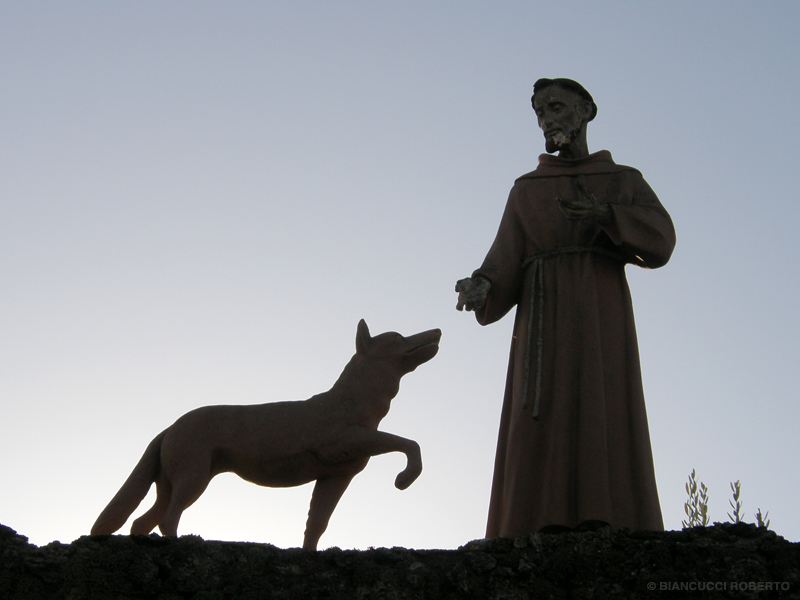
St. Francis of Assisi is widely celebrated as the patron saint of animals, known for his deep love of creation. This FAQ explores his life, legacy, and why he holds this special role in the Church.
St. Francis of Assisi, an Italian saint who lived from 1181/82 to 1226, is recognized as the patron saint of animals and the environment.
He’s known for his profound love for all of God’s creation, often preaching to birds and taming a wolf, as recounted in stories like the “Wolf of Gubbio.” His life reflected a deep connection to nature as a reflection of divine goodness.
One famous tale is when he preached to a flock of birds in Umbria, urging them to praise their Creator. The birds stayed still, listening, and then flew off in formation, a moment seen as a sign of his harmony with nature.
Born in 1181 or 1182 in Assisi, Italy, he lived until October 3, 1226. He founded the Franciscan Order and embraced a life of poverty and service after a dramatic conversion.
After his death, his holiness—marked by miracles, stigmata, and his radical faith—led to his canonization by Pope Gregory IX in 1228, just two years later. His life of humility and love for creation cemented his legacy.
On October 4, his feast day, many parishes hold animal blessings to honor his care for creatures. This tradition reflects his belief that all creation glorifies God, uniting people and pets in prayer. It’s a joyful celebration of his ecological spirituality.
Yes, his “Canticle of the Creatures” praises God through elements like Brother Sun and Sister Moon, including animals as part of creation’s chorus. Written near his death, it’s one of the earliest works of Italian poetry and shows his theology of nature.
While St. Anthony of Padua (fish) and St. Martin de Porres (care for animals) have ties, St. Francis stands out as the primary patron due to his widespread stories and influence. His unique bond with creation sets him apart.
In a world facing environmental crises, St. Francis inspires us to see creation as sacred and interconnected, urging stewardship over exploitation. His simplicity challenges materialism, while his gentleness with animals models compassion. Pope Francis’ encyclical Laudato Si’ echoes this, calling us to care for our “common home” as he did.
Read the Little Flowers of St. Francis, a collection of stories about his life, or his own “Canticle of the Creatures.” The Catechism (CCC 2416) and biographies like G.K. Chesterton’s St. Francis of Assisi offer deeper insight.
Learn More about the Sacred Heart of Jesus on our Youtube Channel